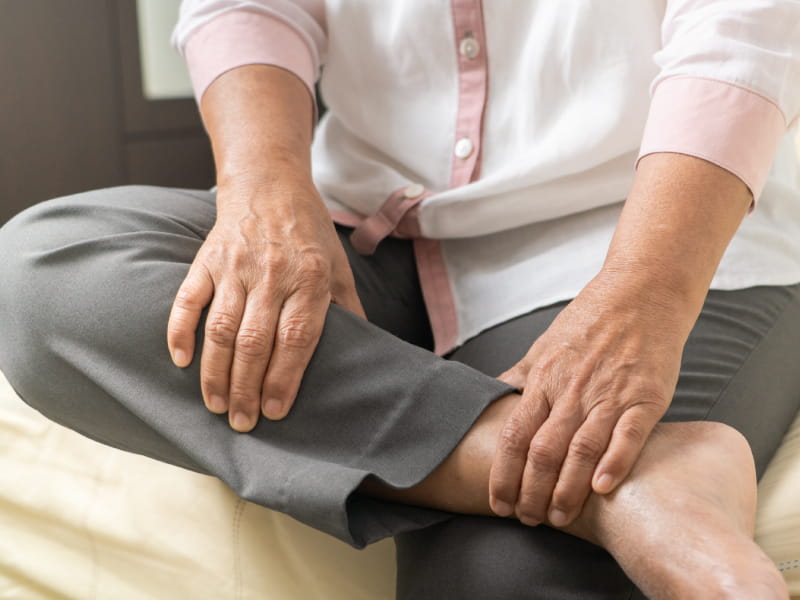Depression may complicate recovery from peripheral artery disease
By American Heart Association News

People with a vascular condition that commonly affects arteries in the legs could have a tougher road to recovery if they also have depression, according to a new study.
The research, focusing on 1,243 people in the U.S., the Netherlands and Australia treated for peripheral artery disease, or PAD, showed women were more likely to be depressed than men. The research was published Wednesday in the Journal of the American Heart Association.
PAD causes a narrowing of the arteries serving the legs, stomach, arms and head. It is associated with a high risk of death and illness from cardiovascular diseases and may cause excruciating pain while walking, impacting mobility and quality of life.
"A major goal of PAD treatment is improving patients' health status and quality of life," the study's lead author Dr. Qurat-Ul-Ain Jelani said in a news release. She is an interventional cardiologist in training at Yale University School of Medicine in New Haven, Connecticut. "Not recognizing or treating depressive symptoms may stand in the way of realizing optimal recovery. … A multidisciplinary approach that includes mental health supports for patients with PAD would be beneficial."
Researchers assessed depression symptoms at the beginning of the study using an eight-item survey that included questions about their energy, appetite, sleep pattern and interest or pleasure in participating in activities. Their medical conditions were assessed via phone interviews four times over a year.
The results showed:
– At the start of the study, 21% of women had symptoms of depression compared to 13% of men.
– Men and women with depression symptoms had worse health status at each time point, compared to patients who did not report such symptoms.
"This is the first study to document how depressive symptoms may complicate PAD recovery even among patients receiving specialty care," senior study author Kim G. Smolderen said in a news release. She is a clinical health psychologist and co-director of the Vascular Medicine Outcomes Research Program at Yale University's New Haven Hospital.
Because the study focused on people treated at vascular specialty clinics, the findings may not apply to the general population of PAD patients who may not have access to specialty care. In addition, the study excluded other mental health issues, such as anxiety and stress.
"PAD is more than treating the legs and the corresponding pain," Smolderen said. "We need awareness for the patient as a whole in order to provide patient-centric care."
If you have questions or comments about this story, please email [email protected].





